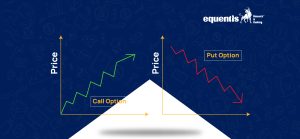Introduction
Imagine being able to profit from stock market volatility without directly predicting its direction. Sounds intriguing, right? This is precisely what Arbitrage Funds aim to achieve. By taking advantage of temporary price gaps between different market segments, these funds generate returns regardless of market trends.
In simple terms, arbitrage funds capitalise on inefficiencies in the financial market — buying low in one segment and selling high in another. This low-risk strategy makes them an attractive option for conservative investors seeking stable returns, especially during uncertain market conditions.
If you are looking for a smart investment tool that combines safety with modest returns, arbitrage funds could be your answer.
What is an Arbitrage Fund?
An Arbitrage Fund is a type of mutual fund that capitalises on price differences between the cash (spot) market and the futures (derivatives) market. These funds aim to generate risk-free returns by exploiting such discrepancies.
Arbitrage funds are considered a safer investment option as they leverage price inefficiencies rather than relying on market direction. They are categorised as hybrid mutual funds, combining equity exposure with debt instruments for added stability.
How Does an Arbitrage Fund Work?
Arbitrage funds profit by buying stocks in the cash market (where shares are bought immediately) and simultaneously selling those stocks in the futures market at a higher price. The price gap between these two markets represents the fund’s profit.
For example:
Cash Market Price: Rs. 1,000
Futures Market Price: Rs. 1,020
Profit from Arbitrage: Rs. 20 per share (before costs)
Since these price gaps often arise due to short-term market inefficiencies, arbitrage funds thrive in volatile conditions when price differences widen.
The fund manager actively identifies arbitrage opportunities by closely monitoring the stock’s movement in both markets. Once the desired gap is secured, the profit is locked in, regardless of further market trends. This hedged strategy reduces risk and ensures stable returns.
Key Features of Arbitrage Funds
- Low Risk: Arbitrage funds are relatively low risk because they exploit price differences between the cash and futures markets rather than relying on stock price trends. Since they engage in simultaneous buy-sell transactions, there’s minimal exposure to market volatility. Even if the broader stock market falls, the hedged nature of arbitrage trades ensures the fund’s returns are not directly impacted.
- Tax Efficiency: Arbitrage funds enjoy the same tax treatment as equity funds. Gains from investments held for over a year are treated as long-term capital gains (LTCG), which are taxed higher. For short-term gains (less than one year), they are taxed differently. This favourable tax structure makes arbitrage funds more efficient than debt funds, especially for short-term goals.
- Volatility Benefit: Arbitrage funds thrive in volatile market conditions. When markets fluctuate significantly, the gap between cash and futures prices widens, increasing the fund’s potential profits. Conversely, in calm markets with minimal volatility, arbitrage opportunities may shrink, impacting returns.
- Liquidity: Arbitrage funds are open-ended, meaning investors can redeem their units anytime. This flexibility makes them ideal for those seeking stable returns with quick access to their money. However, some funds may impose exit loads if units are withdrawn within a specific timeframe (usually 30 to 90 days).
- Moderate Returns: While arbitrage funds typically generate modest returns, these are more predictable and consistent compared to equity funds. Returns are often comparable to liquid funds during stable markets but can outperform liquid funds in volatile conditions.
Benefits of Investing in Arbitrage Funds
- Capital Protection: Since arbitrage opportunities are risk-free by nature, investors are protected from major market downturns.
- Better Than Liquid Funds in Volatile Markets: During uncertain conditions, arbitrage funds can offer better returns than traditional liquid funds.
- Tax Advantages: Gains are taxed as equity funds, often resulting in lower tax liability.
- Suitable for Short-Term Goals: With a holding period of 3 to 6 months, arbitrage funds are ideal for parking surplus cash temporarily.
- Stable Income: The consistent nature of arbitrage profits ensures a steady stream of returns, making these funds attractive for risk-averse investors.
- Diversification: Arbitrage funds reduce overall portfolio risk by introducing a low-risk investment option that performs independently of equity market trends.
- Flexibility in Market Conditions: Unlike traditional equity or debt funds, arbitrage funds perform optimally during periods of heightened market volatility, giving investors a safer route during uncertain times.
- Hedged Strategy for Protection: Since every position is backed by a simultaneous buy and sell transaction, arbitrage funds are largely immune to major price fluctuations.
Risks of Arbitrage Funds
- Limited Returns: Arbitrage profits are typically modest, making these funds less attractive for aggressive investors looking for high growth.
- Market Dependency: These funds require sufficient market volatility to create meaningful arbitrage opportunities. In calm market conditions, potential gains may shrink.
- Exit Load: Some funds may impose exit loads if withdrawn before a specified period, reducing immediate liquidity benefits.
- Transaction Costs: Frequent buy-sell transactions can increase fund expenses, which may reduce net returns.
- Execution Delays: Arbitrage opportunities can be short-lived, and delays in execution can reduce or even eliminate potential profits.
- Fund Management Risk: The effectiveness of an arbitrage fund heavily relies on the fund manager’s expertise in spotting and acting on price discrepancies. Poor management may lead to underperformance.
- Tax Impact for Frequent Traders: While arbitrage funds enjoy equity taxation benefits, frequent withdrawals may lead to short-term capital gains taxes, which are taxed at a higher rate.
Who Should Invest in Arbitrage Funds?
Arbitrage funds are ideal for conservative investors seeking low-risk options with moderate returns. They are suitable for individuals looking for tax-efficient returns with minimal equity risk and those seeking alternatives to liquid funds during volatile market conditions. Investors who want to park money for a short-to-medium term (3 to 6 months) without exposure to significant market risks may also benefit from arbitrage funds.
Additionally, retirees or senior citizens seeking stable income with minimal risk exposure, individuals with a balanced risk profile seeking diversification, and those preferring a hedged investment strategy to safeguard against sudden market swings can find arbitrage funds to be a strategic addition to their portfolio.
How to Choose the Right Arbitrage Fund?
When selecting an arbitrage fund, consider the following factors:
- Expense Ratio: Lower costs ensure better net returns. Opt for funds with minimal management fees.
- Fund Performance: Evaluate historical returns during volatile periods to assess the fund’s effectiveness in capturing arbitrage gains.
- AUM (Assets Under Management): Larger funds often manage volatility better and ensure smooth fund operations.
- Exit Load & Holding Period: Check applicable fees for early redemption to avoid unexpected costs.
- Fund Manager Expertise: Choose funds managed by experienced professionals with a strong track record in handling arbitrage strategies.
In conclusion, arbitrage funds can be an excellent choice for conservative investors seeking stability and tax efficiency. While they don’t offer high-growth potential, they provide a safe haven during volatile market conditions. By leveraging price discrepancies between markets, these funds can generate stable returns, making them suitable for investors with short-term goals or those looking to diversify their portfolio. Before investing, assess your risk tolerance and investment horizon to determine if arbitrage funds align with your financial goals.
Related Posts
Disclaimer Note: The securities quoted, if any, are for illustration only and are not recommendatory. This article is for education purposes only and shall not be considered as a recommendation or investment advice by Equentis – Research & Ranking. We will not be liable for any losses that may occur. Investments in the securities market are subject to market risks. Read all the related documents carefully before investing. Registration granted by SEBI, membership of BASL & the certification from NISM in no way guarantee the performance of the intermediary or provide any assurance of returns to investors.
FAQ
Are arbitrage funds suitable for beginners?
Yes, arbitrage funds are ideal for beginners due to their low-risk nature and stable returns, making them a safer entry point into mutual fund investing.
When do arbitrage funds perform best?
Arbitrage funds perform optimally during volatile market conditions as they profit from price differences between the cash and futures markets.
Can arbitrage funds replace liquid funds for short-term investments?
Yes, especially in volatile markets, arbitrage funds can outperform liquid funds while offering better tax efficiency.
What is the ideal holding period for arbitrage funds?
The ideal holding period is 3 to 6 months to maximise tax efficiency and capture market volatility for optimal returns.
How useful was this post?
Click on a star to rate it!
Average rating 0 / 5. Vote count: 0
No votes so far! Be the first to rate this post.
I’m Archana R. Chettiar, an experienced content creator with
an affinity for writing on personal finance and other financial content. I
love to write on equity investing, retirement, managing money, and more.
- Archana Chettiar

























